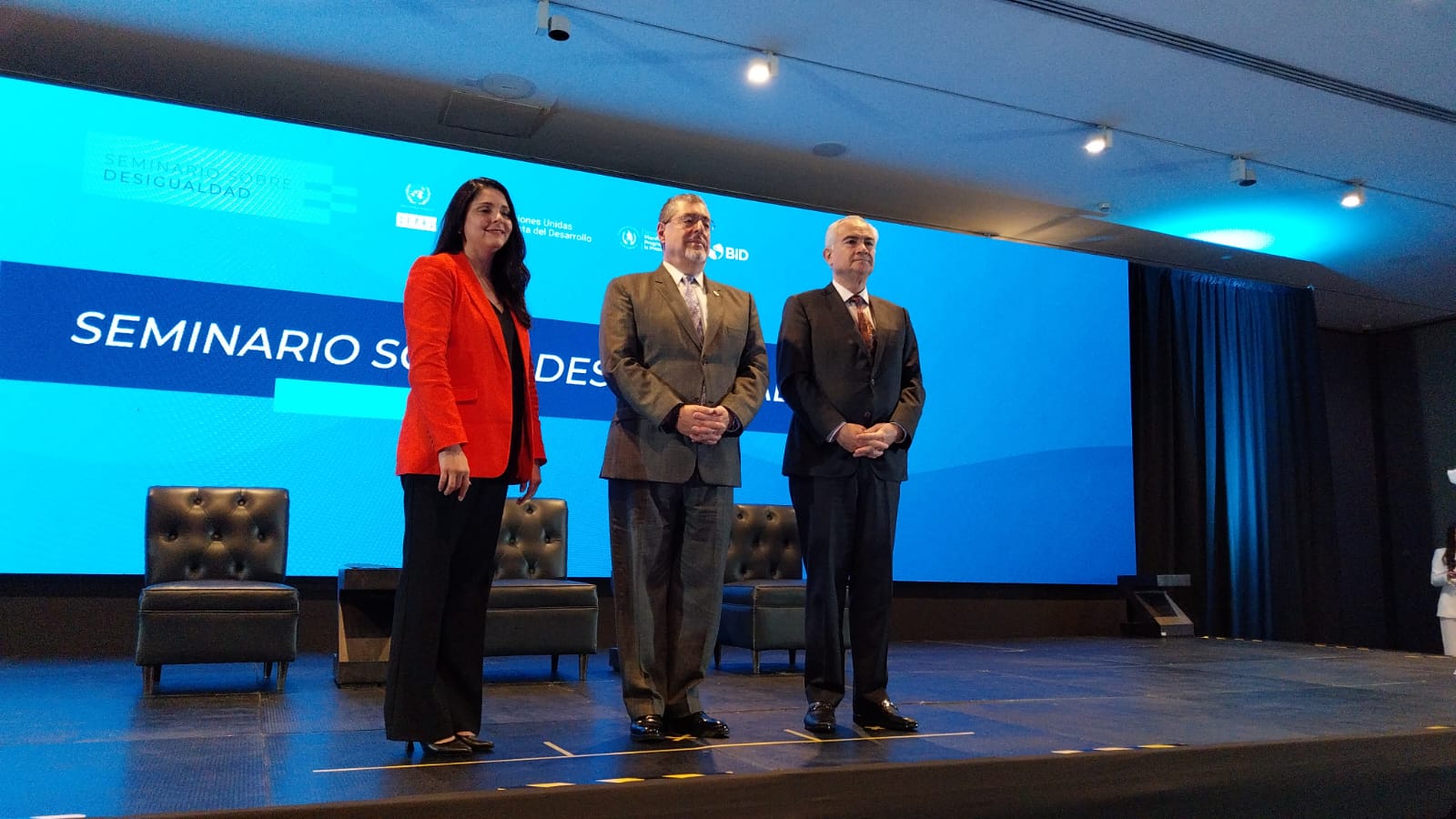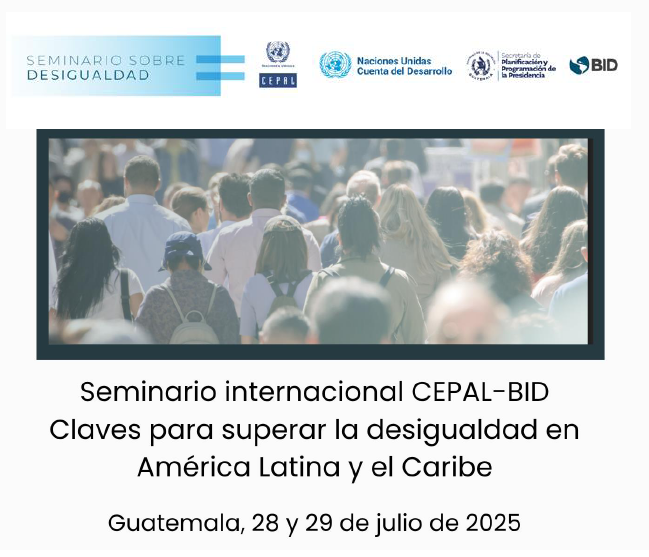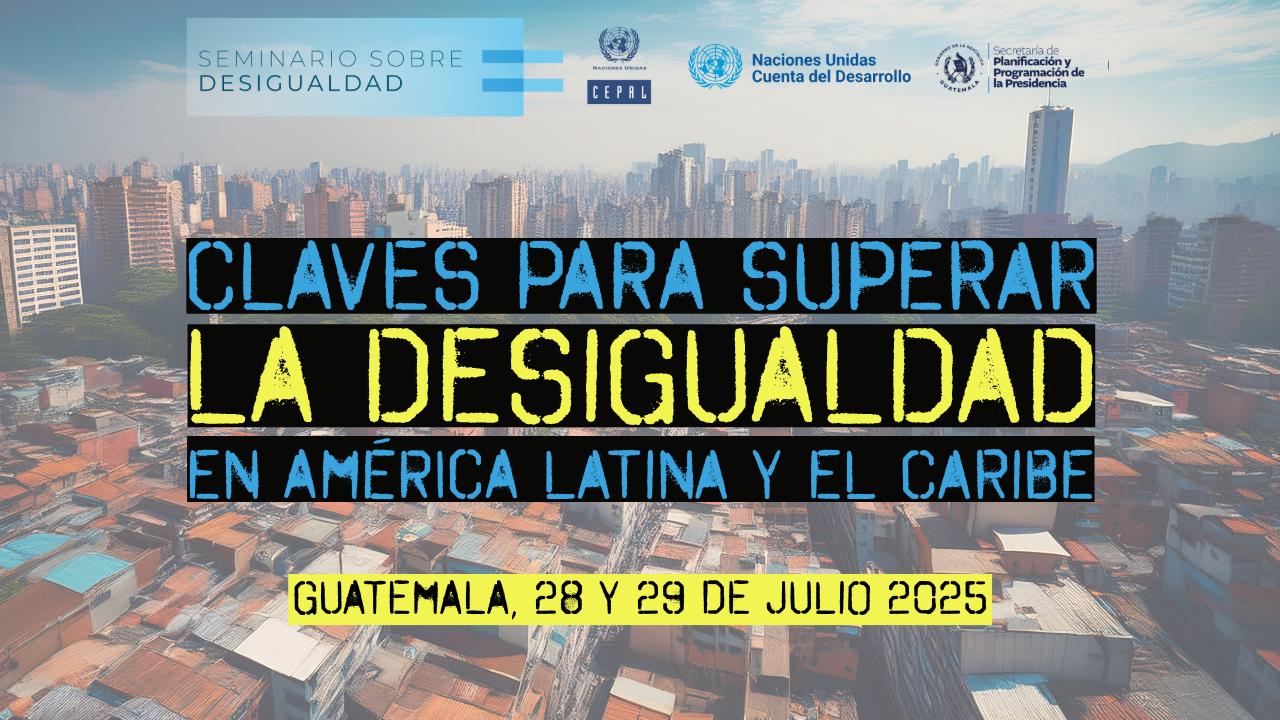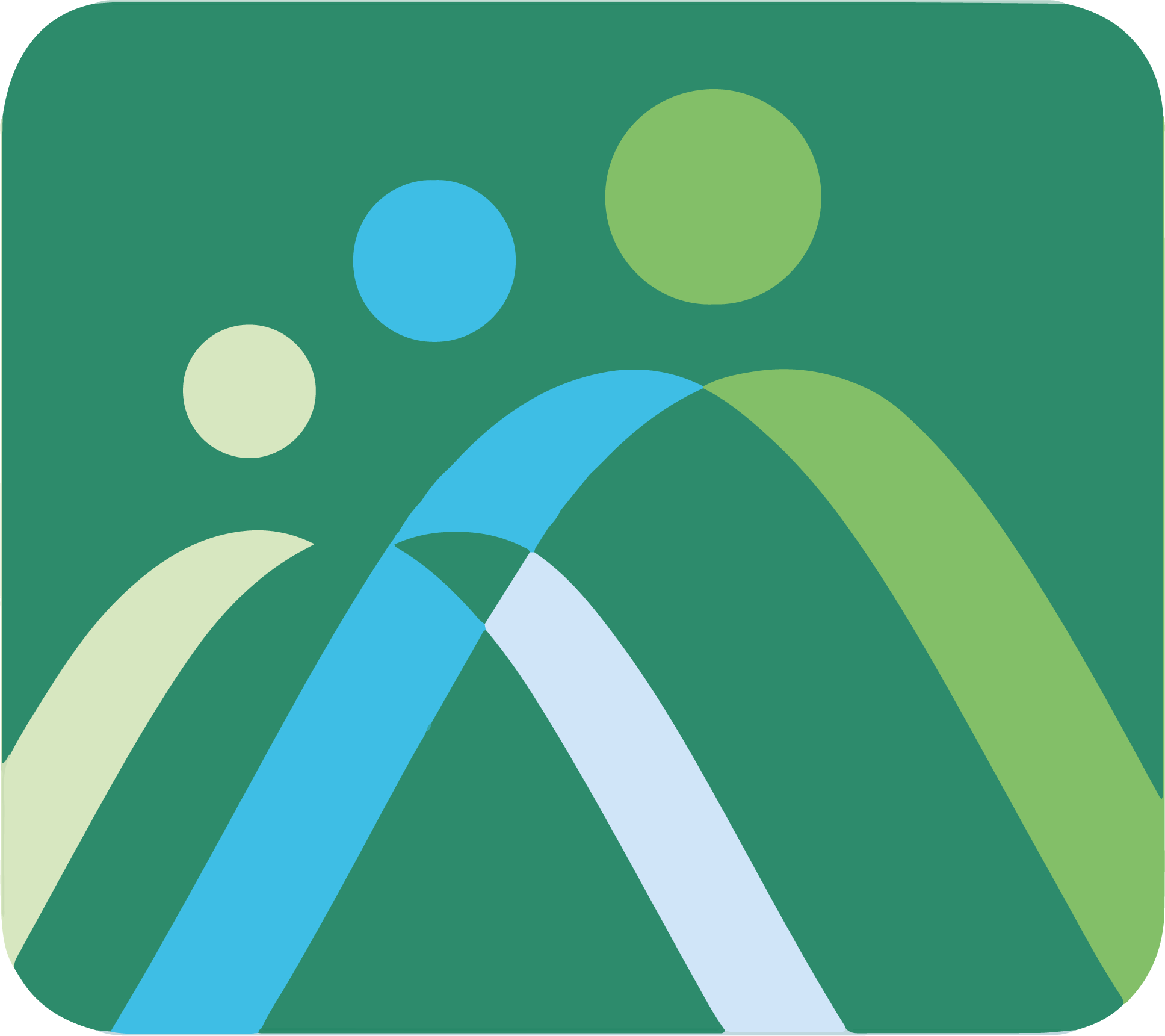Transformative and Comprehensive Public Policies for Overcoming Inequality in Latin America and the Caribbean are Advocated For at Seminar in Guatemala
Work area(s)
“The possibility of a more equitable Guatemala and Latin America depends on the decisions we make today,” the President of the Republic, Bernardo Arévalo, said at the inauguration of this event organized by ECLAC and IDB.

Authorities and specialists advocated today for implementing transformative and comprehensive public policies to overcome the high inequality that characterizes Latin America and the Caribbean, at an event inaugurated by the President of the Republic of Guatemala, Bernardo Arévalo, in the Central American country’s capital. Policies are needed to foster more equal opportunities, universal, comprehensive, sustainable and resilient social protection, and a more dynamic and diversified productive structure, participants emphasized at the ECLAC-IDB International Seminar: Keys to Overcoming Inequality in Latin America and the Caribbean, which is taking place through Tuesday, July 29.
“Inequality is much more than unfair income distribution; it is a design flaw that Latin American societies have not been able to correct throughout our history,” President Bernardo Arévalo stated at the event’s opening session, adding that “inequality perpetuates, across generations, an economic structure that rewards capital more than work, that maintains precarious public services, that denies the majority of people the possibility of growing and prospering and that is particularly merciless with women, indigenous peoples, youth and those who live and work in rural territories and in the peripheries.”
“The possibility of a more equitable Guatemala and Latin America depends on the decisions we make today,” the president exhorted, reaffirming his government’s commitment “to a high-quality social policy that is effective and efficient, sustainable and transparent, agreed upon and underpinned by strong institutions and by broad and legitimate social compacts.”
Also speaking at the seminar’s inauguration, José Manuel Salazar-Xirinachs, the Executive Secretary of the Economic Commission for Latin America and the Caribbean (ECLAC), stressed that “this seminar is being held at a critical time. Our region continues to be the most unequal one on Earth. This structural and multidimensional inequality not only affects income distribution – it is also manifested in access to education, to quality jobs, to social services, to health, to social protection and to so many other dimensions of human well-being.”
The senior official explained that ECLAC has conceptualized this reality as a trap of high inequality, low mobility and weak social cohesion. “This trap comes alongside and is interrelated with two others that we have been insisting on, which are the trap of low capacity for growth and transformation, and another one involving low institutional capacity and ineffective governance. These three traps hinder progress towards more inclusive social development, with greater mobility and social cohesion,” he indicated.
Meanwhile, Mariano Bosch, Principal Advisor to the Vice Presidency for Sectors and Knowledge at the Inter-American Development Bank (IDB), sustained that “inequality is a complex problem that requires an agreed-upon, collective and coordinated effort by the entire society. We at the Inter-American Development Bank support Latin American and Caribbean countries with knowledge, resources and technical experience to help design and implement public policies that would allow for overcoming poverty and inequality in our region and generating true progress in conjunction with the private sector.”
According to ECLAC’s data, Latin America and the Caribbean grew just 0.9% per year on average in the 2014-2023 decade. This is less than the 2% rate at which it grew in the infamous lost decade of the 1980s. That is why the United Nations regional organization has dubbed it the “second lost decade,” and flags the work that must be done in order to avert a third one.
“And it is not just a lost decade in terms of growth, but also in terms of poverty reduction and quality job creation – two dimensions that are closely related to growth. After having managed to slash poverty from levels of 50% in the early 1990s to 27% in 2014, it stalled precisely around 2014-15, when the second lost decade began. And something similar occurred with the creation of quality employment, the growth rate of which between 2014 and 2023 was the lowest in six decades,” José Manuel Salazar-Xirinachs explained.
In light of this, the Executive Secretary shared seven public policy guidelines for reducing inequality, increasing social mobility and strengthening social cohesion in the region: 1) Make progress on a new generation of productive development policies; 2) Implement effective redistributive fiscal policies; 3) Promote strong social and social protection policies; 4) Strengthen educational systems from early childhood on and throughout the life cycle, along with broad access to vocational training; 5) Move towards gender equality and the care society; 6) Strengthen urban planning and management policies; and 7) Produce quality information that would enable continual measurement of the multiple dimensions of inequality.
The social policies include, specifically, the need to build universal, comprehensive, sustainable and resilient social protection systems; to consolidate (contributory and non-contributory) pension systems and quality health systems with universal access; and to foster labor inclusion policies.
The two-day gathering in Guatemala includes five thematic panels on how to reduce educational inequality from early childhood to secondary education; labor inclusion and climate change; the expansion of social protection for older persons; geographic inequality in Guatemala; and the region’s proposals ahead of the Second World Summit for Social Development (Qatar, November 4-6).
This event marks the start of the United Nations Development Account project “Labor inclusion to address climate change and its impacts on the future of work in Latin America and the Caribbean,” implemented by ECLAC.
The regional seminar aims to have participants conduct diagnostics and analyze innovative solutions that would allow for transforming the region’s historical and structural challenges into engines of economic growth and more productive, inclusive and sustainable development.
Related event

Seminario internacional CEPAL-BID "Claves para superar la desigualdad en América Latina y el Caribe"
<p>Este seminario busca identificar y aprovechar las oportunidades para superar la desigualdad, mejorar la movilidad social y fortalecer la cohesión social en la región. Durante dos días se…
Related content
La trampa de alta desigualdad y baja movilidad social en América Latina y el Caribe. Un obstáculo para el desarrollo social inclusivo y sostenible
Presentación del Secretario Ejecutivo de la CEPAL, José Manuel Salazar-Xirinachs, en el Seminario internacional CEPAL-BID: “Claves para superar la desigualdad en América Latina y el Caribe".

CEPAL y BID organizan en Guatemala seminario que abordará claves para superar la desigualdad en América Latina y el Caribe
El Presidente de la República, Bernardo Arévalo, encabezará la inauguración de este evento internacional que se llevará a cabo el 28 y 29 de julio en Ciudad de Guatemala.
Subregional headquarter(s) and office(s)
Related link(s)
Country(ies)
-
Guatemala
Contact
Public Information Unit
- prensa@cepal.org
- (56 2) 2210 2040

